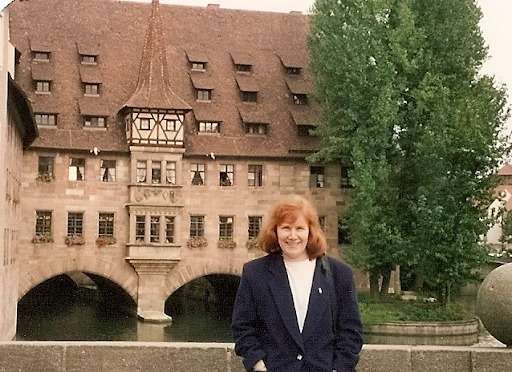
Here at the Center for International Environmental Law (CIEL), we know our strength comes from the people who make up our movement — from our staff, to our partners, to our steadfast supporters. Our “Meet Our Staff” series will introduce you to some of our amazing staff members, who work behind the scenes every day to defend the right to a healthy environment.
Karin Cicelski has served as an Executive Assistant at CIEL for over fourteen years now. She is originally from Germany and still maintains a love of travel. She will sadly be leaving CIEL soon, but she hopes to return to her travels in the years ahead. We spoke with Karin about what she does here at CIEL, her unconventional German background, and more.
What is a typical day like as the Executive Assistant at CIEL?
Karin: In the morning, I update Carroll’s calendar and coordinate and schedule meetings with staff, partners, and journalists. I then check his calendar for any outstanding items that he needs to address. Throughout the day, I manage his email box to make sure he knows what meetings are taking place and when, and how to reach any of the parties he needs to contact. I update filing systems, screen calls, and manage everything related to his correspondence and everyday paperwork. Carroll used to travel frequently before the pandemic, so that meant I was responsible for organizing his flights and travel arrangements. I reconcile his credit card statements and maintain his extensive timesheet. Lastly, I am the liaison for CIEL’s Board of Trustees and Advisors, and so I schedule and coordinate board and committee meetings that take place three times a year.
Why did you join CIEL’s team? What interests you about the organization and its mission?
K: What attracted me to CIEL is the international aspect of the organization and its mission. I come from Europe, but I am now in the US, so the international aspect was very important to me. The other aspect I like about CIEL is that we deal with everything that has to do with the world around us, from climate change, to plastic, to toxics, and everything in between. The third aspect I admire about CIEL is our human rights focus. For example, Indigenous Peoples are often up against huge corporations who are violating their rights. CIEL’s lawyers elevate their voices and advocate with them to defend these rights and reassure them that they have partners in this fight.
What’s one of your favorite memories from your time at CIEL?
K: I honestly just enjoy working with the people who make up CIEL. It’s like a family; everybody takes care of each other. In addition, one of my favorite things to do is go to CIEL rallies. I have attended more than a few, and I’ve enjoyed every one of them. You show the community that you care about current issues. Plus, I’ve always loved being able to inform passerbys of the issues and rights violations that so many are facing.
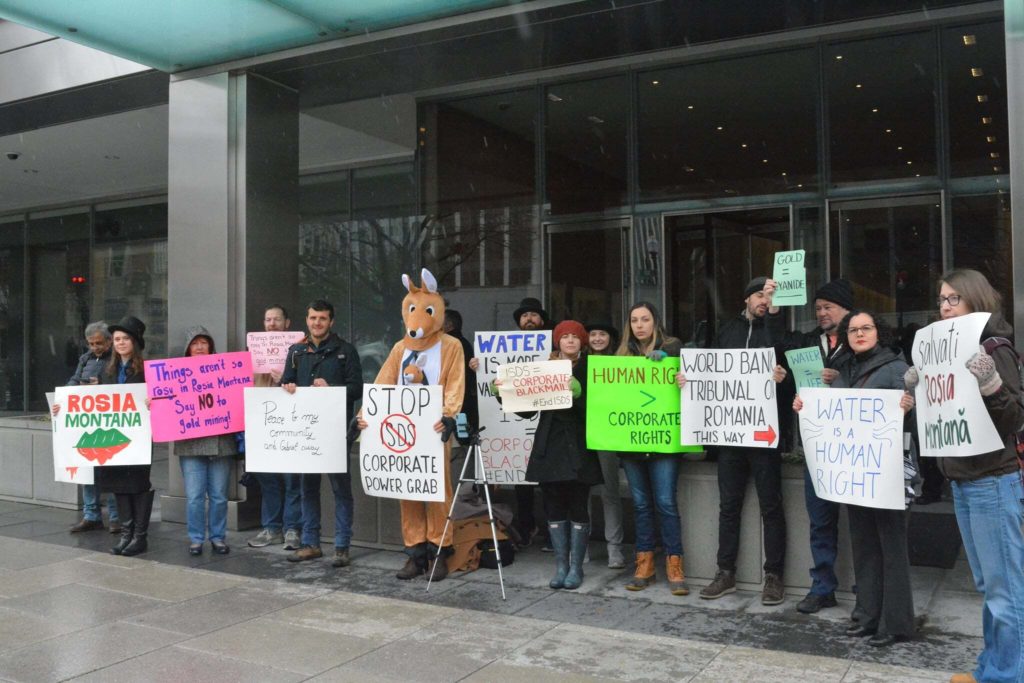
What has surprised you most at CIEL?
K: I see CIEL as “The Little Engine that Can.” As small as we are, or were (we used to be 10-12 people), and despite limited resources, we have always been able to meet every challenge that was presented to us. Despite those challenges, we have always managed to continue our work without hesitation, even taking on very large and powerful corporations. The question, “How are we going to do it all?” has remained throughout my time here, but what has always impressed me is that we do the work regardless, somehow, every time.
You’ve been with CIEL for many years. What changes have you seen within the organization?
K: There have not been too many changes. CIEL has stayed true to its mission. People have come and gone, and what we’ve been working on has shifted a bit from solely climate change and toxics to plastic work because the plastic crisis has become such a huge problem. We adapt to the environmental problems of the times and shift our focus to truly make change.
Tell me something people would be surprised to know about you!
K: My background is not what many people expect. I spent most of my childhood and adolescent years in a private boarding school located in a huge castle that belonged to a German prince. I spent half my life in a totally different environment than most Germans, but it was home for me. I loved it, and my classmates and I still go back to the castle for reunions.
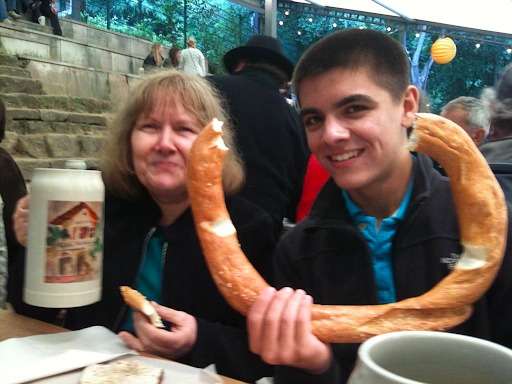
What do you like to do in your free time?
K: I like to travel. I used to go home to Germany twice a year and travel within Germany and in Europe during my visits. I find it interesting to talk to people in other countries and find out how they live and what they think. My husband used to be in the Air Force and we traveled extensively. Wherever we were based, we would find the time to visit other surrounding countries.
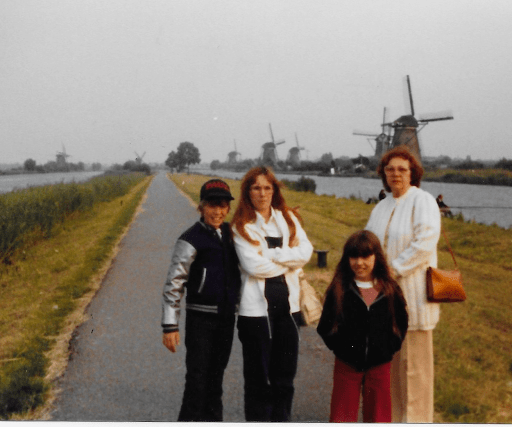
If you could have any superpower, what would it be and why?
K: Having experienced the traffic on the infamous 95 and 66 in this area, I would love to be able to teleport all of us to DC without having to sit in traffic for 3-4 hours a day.
I know you’ll be leaving us soon! What’s next for you?
K: I am planning on traveling again. As I said, I find getting to see other places and the lifestyles of the people there fascinating. I’m very much looking forward to it.
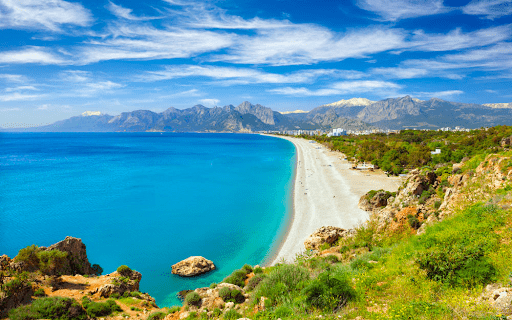
Interviewed by Sarah Street, Communications Intern
Originally posted on August 3, 2020
